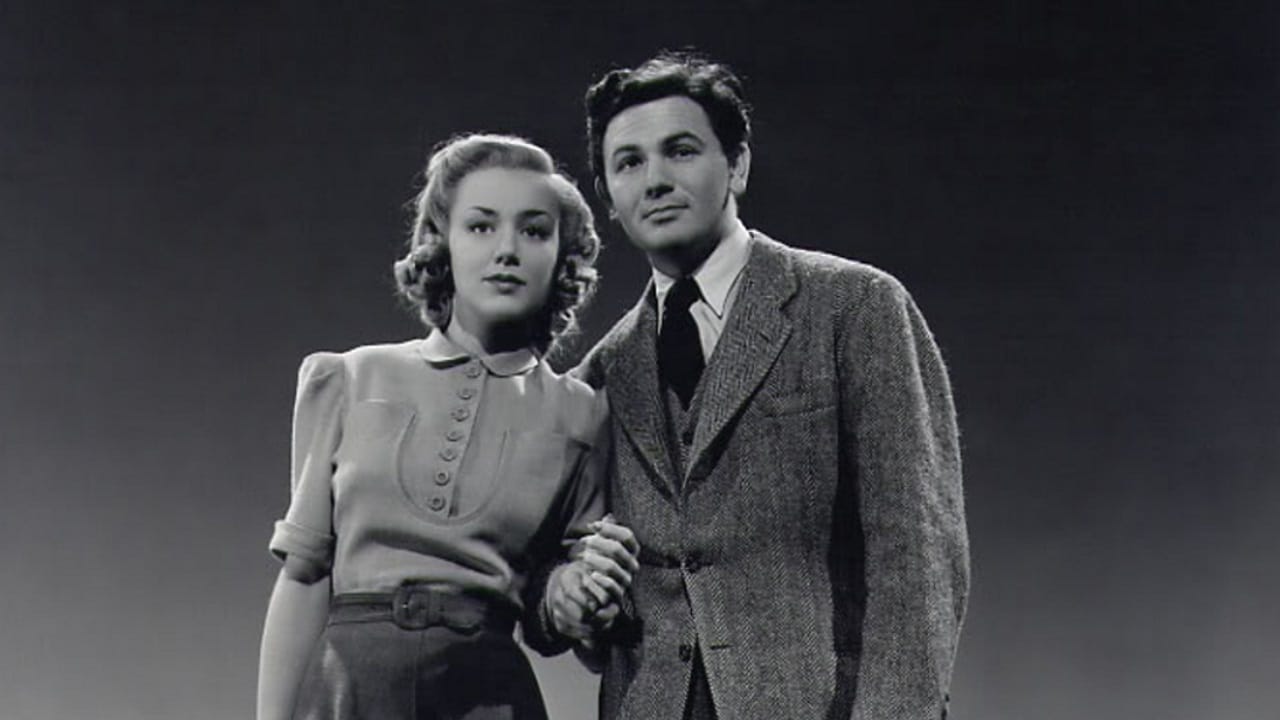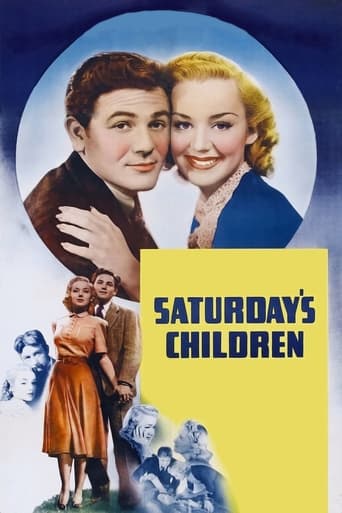

A charming and rather riveting tale about a newlywed couple who struggle through some financial hardships, yet their incessant love for each other wins out in the end, and the money naturally follows such passion. They meet on a bus of all places, where they are immediately attracted towards one another, and allow themselves various "coincidences" to meet up again on the street - he is an inventor of such quirky gadgets like the door lock which engages like a safe, and an instant cigarette-rolling apparatus. After a rough argument, the two temporarily part ways, and through a supremely noble sacrifice by a relative, rejoin their inevitable love. He subsequently rejects a gig in The Phillipines for their union, and all finally balances out.
... View MoreThis copy of this film, seen recently on TCM, had a faded look, which contributes to lose the viewer's interest in a film that doesn't seem too relevant today. The main attraction for watching it, was the interesting cast put together for it. Unfortunately, the most important part, is terribly miscast.The story takes place in Manhattan at the end of the Great Depression. Based on a play by Maxwell Anderson, it probably worked better on the stage than in the adaptation that Julius Epstein, one of the best writers of the period, gave it. It doesn't help either, that director Vincent Sherman didn't appear to be too enthused with the material, as evident in the finished product.John Garfield was totally wrong for Rims Rosson. He doesn't have that spark that was his trade mark. In the film he is just too bland. Ann Shirley plays the sweet Bobby Halevy. Claude Rains, though, is about the most likable character in the film because as the father of Bobby, he is an honest man who wants to do everything possible to guarantee his daughter's happiness.The supporting cast is excellent. Lee Patrick, is seen as Florrie. Roscoe Karns and the always dependable George Tobias, make good contributions in minor roles.Watch "Saturday's Children" as dated curiosity piece.
... View MoreI've been watching any John Garfield films I can lately, and so far, this has been the most disappointing. Garfield is so miscast. I can't imagine what the studio was thinking. The film attempts to deal with the issue of young marriage facing poverty, but every character is so naive that I often found myself wondering if there was a gas leak in their building. It's the only rational way to explain their inability to cope with major problems at anything other than a fifth grade level. Garfield, who was Brando before there even was a Brando, is thoroughly wasted here. He plays his character as a sort of slack-jawed mope, who either pouts or widens his eyes at every little thing. Anne Shirley is attractive, but bland. Claude Rains starts promisingly, but even he can't surmount the problems inherent in the script. The film also commits the horror of having a character use the title in a dramatic moment in the end, summing up the entire film just before the credits roll. As if people really talk like that. John Garfield is amazing, and worth watching in just about anything. But not this.
... View MoreThis wartime movie about the struggle of a family in a still economically depressed New York environment, tries hard to entertain with its Neil Simonesque dialogue. Then comes the bombshell. When father Halevy (Claude Rains), a failure by anyone's, including his own, standards, realizes that his adored daughter Bobby (Anne Shirley) is headed for an unrealized life of failure not unlike his own for want of a mere one thousand dollars, he decides to give her this money the only way he still can, by staging a potentially suicidal elevator crash. The scene of Halevy's leaving home before going through with this scheme is very close to Willy Loman's corresponding scene in "Death of a Salesman." According to the credits, "Saturday's Children" is based on a Pulitzer Prize winning play by Maxwell Anderson, which a young Arthur Miller surely must have seen. If it suggested the end of his major masterpiece "Death of a Salesman" to Miller, that alone would redeem this otherwise schmaltzy play/movie.
... View More